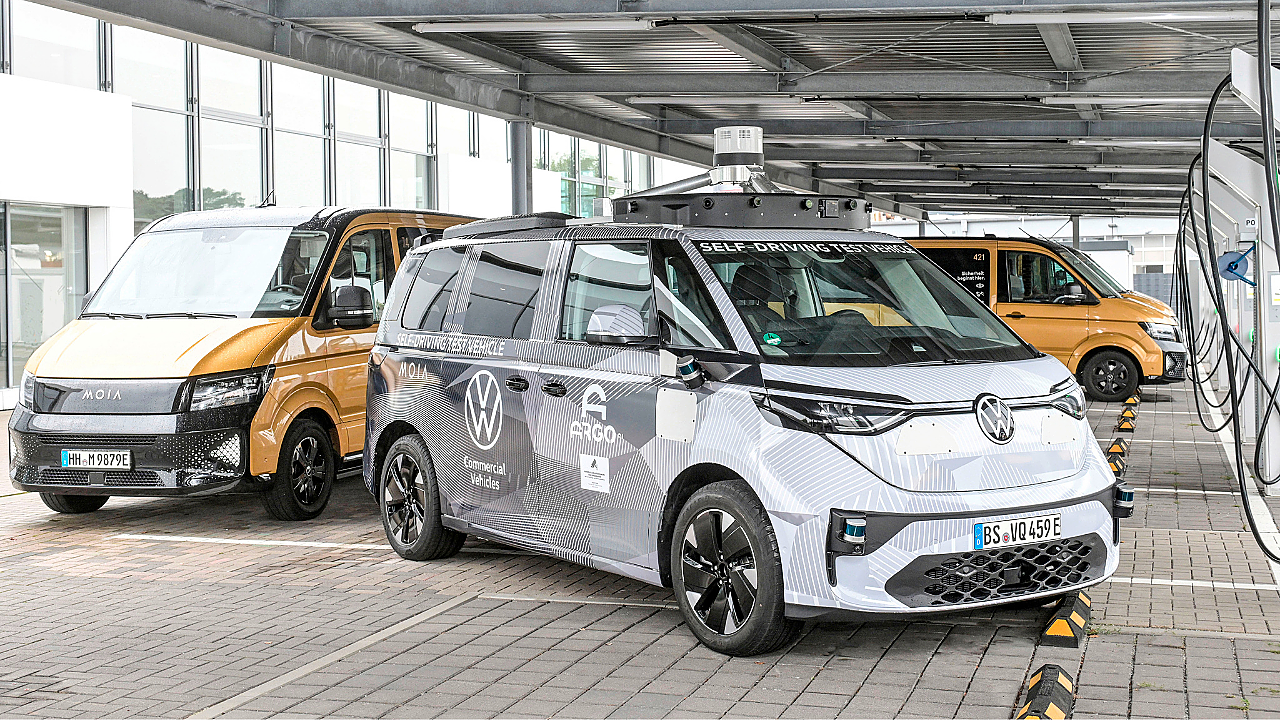
Volkswagen Group, one of the world’s leading automobile manufacturers and the largest carmaker in Europe, has been focussing on the efficient, sustainable, safe and convenient movement of people and goods. As part of its initiative to accelerate its intent on these lines, the group plans to present related solutions at the ITS World Congress in Hamburg, the world’s largest industry event for intelligent transportation systems.
To be held from October 11 to 15, 2021, the focus for the group at the event will be on autonomous driving, the intelligent use of vehicle data and the integration of electric vehicles into the power grid.
With its Volkswagen Commercial Vehicles (VCV), MOIA, CARIAD, Elli and MAN Truck & Bus brands, the group aims to provide a forum for interested parties and experts with live demonstrations of pioneering pilot projects, panel discussions, lectures and expert talks.
According to Gernot Döllner, Senior Vice President Group Strategy, Volkswagen, the intelligent transportation systems play a key role in future-proof mobility in cities and beyond. They are the basic prerequisite for carbon-neutral, connected, safe and tailored mobility solutions and key factors in its New Auto group strategy. “Together with our partners, we will make the mobility of people and goods even more efficient, sustainable and convenient,” he adds.
Drivers Of Mobility Revolution
Volkswagen Group believes that autonomous driving is a key technology that enables new mobility solutions and improves road safety. VCV, MOIA (the ride pooling service of the Volkswagen Group) and ARGO AI (an autonomous driving technology company) are currently testing an autonomous ridesharing system in a pilot project in Hamburg, which will go into series production in 2025. At ITS, MOIA plans to use an interactive simulation to show how large-fleet autonomous ridesharing can contribute to the mobility revolution, using a 1:2 model of the ID.BUZZ.
The group will also allow visitors to experience various usage scenarios of self-driving shuttles to transport goods and people. In addition, MAN Truck & Bus and Hamburger Hafen und Logistik AG (HHLA) will present the results of their joint 'Hamburg TruckPilot' project. The two companies have demonstrated in the HHLA container terminal Altenwerder that the use of autonomous trucks is technologically possible in real-world applications and that they can be integrated efficiently in logistics processes.
Data Sharing
The automotive software company that bundles together Volkswagen Group's software competencies, CARIAD,
will provide insights into data-based services that help improve traffic safety and flow at the World Congress. For example, anonymised data from group vehicles enable authorities in Europe and the US to optimise road maintenance and winter services already today. By 2030, up to 40 million vehicles from the group will be connected to the cloud, providing the basis for secure access to the anonymised vehicle and environmental data.
Volkswagen is also participating in the newly created Mobility Data Space, presenting initial use cases at the ITS. Companies and organisations can exchange data securely and sovereignly to enable and advance innovative mobility concepts via the data space.
EV Integration
Another core topic is the systematic switch to e-mobility. Elli, the energy and charging solutions provider, is creating a comprehensive energy ecosystem around the vehicle, from wall boxes to digital services. At ITS, the group company will also demonstrate how electric vehicles become part of the energy system as mobile storage devices through high-voltage batteries. Bidirectional charging also strengthens the driving role of e-mobility for the energy transition; self-generated electricity from renewable energy sources can be stored in the vehicle and fed back into the house as needed. Not only does this make customers less dependent on the public power grid, but it also saves costs and CO2. The brands of the Volkswagen Group are likely to offer this technology from 2022 onwards in models based on the MEB modular electric drive matrix.
Cooperation For Transformation
For Volkswagen, cooperative projects with cities, industry partners and public institutions are key for creating an integrated, future-proof transportation system. The group has had a particularly close city partnership with Hamburg since 2016.